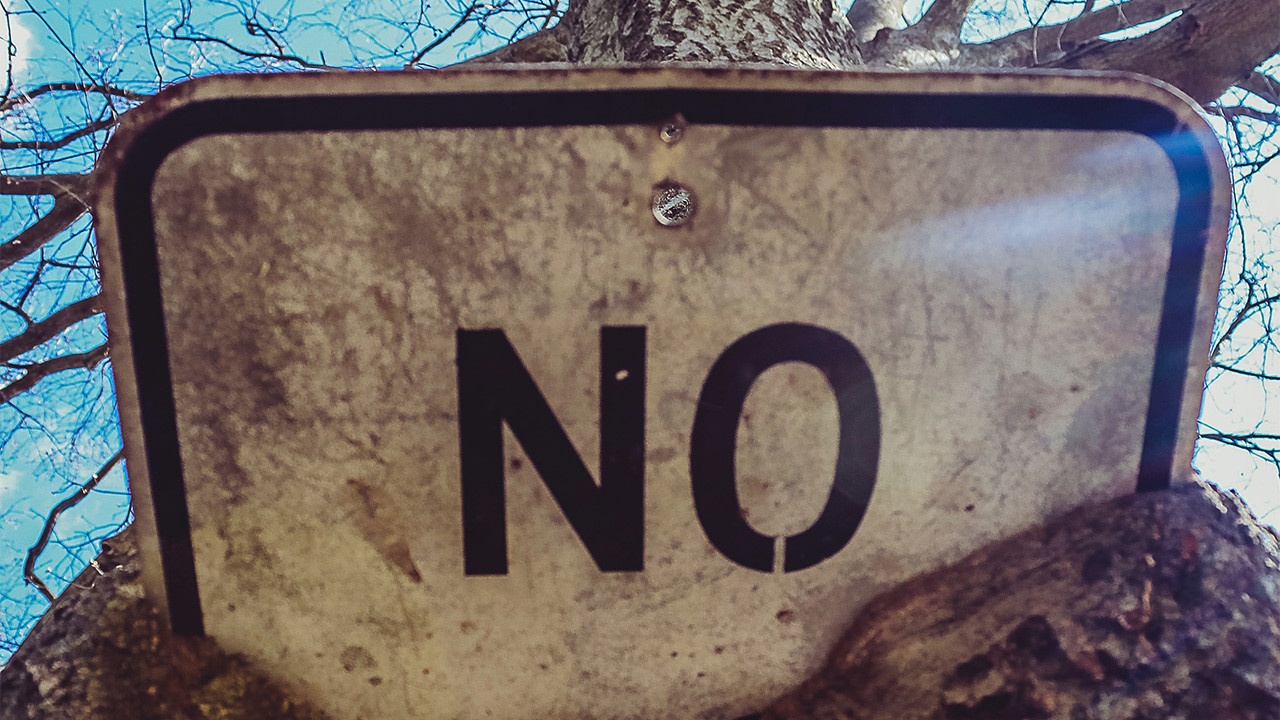I’ve always had a hard time saying no.
Call it social conditioning, the patriarchy, people-pleasing, what-have-you… all I can say is that when someone asks me to do something, my knee-jerk reaction is to say yes. Whether or not I actually want to do it.
At the beginning of my career, the ability to say yes to anything was a helpful trait to have. I got a chance to explore all the different ways one can make money singing, from church choir gigs to composer recitals to singing sea shanties while sailing around the Boston Harbor in a three-masted schooner (true story).
Eventually, I said yes so many times that my schedule filled up, and then I had a different problem: schedule conflicts.
I spent many hours poring over different rehearsal schedules, overlaying one on top of the other so I could figure out which rehearsals I could get released from one group in order to sing with a different group…all the while trying to balance the number of releases fairly across all the organizations in town.
I got quite good at this balancing act. I love spreadsheets and calendars so my “Conflict Calendar of Doom” Google Calendar was a wonder to behold (and heavily shared among music directors in town).
I was actually making a living by saying yes to everything, and I thought I had “made it.” Isn’t that what all musicians want? A gigging life that pays the bills instead of having to have a muggle job?
Except I wasn’t happy.
My gig life was becoming my muggle job.
If the object of the exercise was to do all the things, I succeeded…but by trying to do everything I was actually doing nothing in terms of moving my career forward. And worse, I was burning myself out.
I realized I needed to change my behavior.
I was going to have to say NO.
But what if I say no and all the gigs go away? My fear voice was quick to point out.
Let’s just start small and see what happens, I told that voice.
So I started small, first with church gigs, then with some of the lower paying and less fulfilling gigs…
…and now, I am delighted to report that by saying no, so many more opportunities have opened up for me than were there before.
There are amazing opportunities for you right now, waiting in the wings. You just can’t see them because you are focused on the bright lights in your eyes.
Saying no is so important for those of us who are (recovering) people-pleasers, because it allows us the opportunity to:
• Set boundaries
• Establish safety within those boundaries
• Foster self-trust when we enforce those boundaries
Saying no isn’t rejection. It’s about choosing self-care first before giving to others. It’s about knowing yourself well enough to know when you have surplus from which to give and when you need to replenish your own cup.
So, how do you know when to say no and when to say yes?
Step 1: Sleep on it. If you’re like me, you’ll want to say yes right away. By just saying, “Can I get back to you tomorrow?” you can give yourself the time and space to really consider all the pros and cons.
Step 2: Use the Perfect 30 Test. According to Ari Herstand of the fantastic music industry blog Ari’s Take, there should be 3 criteria for making a decision on whether or not to take a gig:
- Payment
- Career building
- Enjoyment
Each criteria is judged on a scale of 1-10, and you shouldn’t take the gig unless the total of the three is greater than 15. For example, if the payment is fantastic (10) and it’s got great networking potential (4) but you might not be having a good time (1) that equals 15 and you should still take the job. The gigs that you should pass on would be the ones that don’t pay, don’t further your career, and also aren’t fun.
Step 3: Check in with yourself. Are there other priorities you have in your life? Family? Your own artistic project? How does this new offer stack up against those things in your schedule? If you say no to this, what are you saying yes to in your life?
